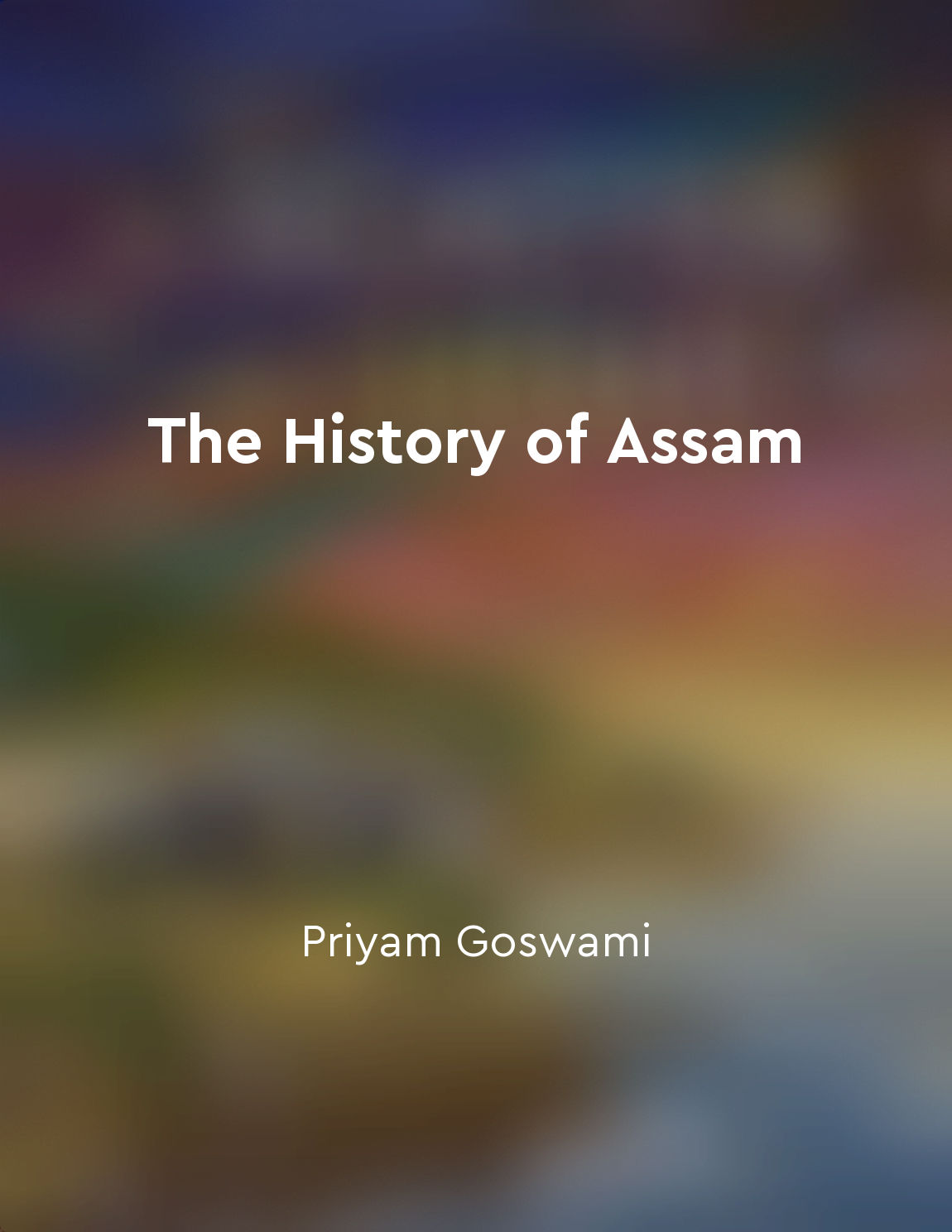Assam played a crucial role in India's freedom struggle from "summary" of The History of Assam by Priyam Goswami
Assam's involvement in India's freedom struggle was significant and multifaceted. The people of Assam actively participated in various movements and protests against British colonial rule. The early 20th century witnessed the rise of nationalist sentiments in Assam, fueled by the oppressive policies of the British administration. One of the defining moments in Assam's struggle for independence was the anti-British movement led by leaders like Ambikagiri Raichoudhury and Kanaklata Barua. These leaders mobilized the masses and organized protests against British policies, advocating for self-governance and freedom from colonial rule. Assam also played a crucial role in the Quit India Movement of 1942, which aimed at forcing the British to leave India. The people of Assam actively supported the movement, participating in strikes, demonstrations, and acts of civil disobedience. The movement was met with harsh repression from the British authorities, but the resilience and determination of the people of Assam remained unwavering. Moreover, Assam provided a fertile ground for the growth of various nationalist organizations and movements. The Assam Pradesh Congress Committee, established in 1921, played a key role in coordinating and leading the freedom struggle in the region. The All Assam Students' Union (AASU), formed in 1967, also emerged as a prominent voice in the fight against oppression and injustice. The contributions of leaders like Gopinath Bordoloi, Tarun Ram Phukan, and Bishnu Prasad Rabha were instrumental in shaping the course of Assam's freedom struggle. These leaders inspired and mobilized the masses, fostering a spirit of unity and solidarity among the people of Assam.- Assam's struggle for independence was characterized by a rich tapestry of movements, leaders, and ideologies. The region's role in India's freedom struggle cannot be understated, as it exemplified the resilience, courage, and determination of its people in the face of colonial oppression.
Similar Posts
Strive for harmony and balance
Gandhi believed that in order to live a fulfilling and meaningful life, one must strive for harmony and balance in all aspects ...
Societies have become more tolerant and inclusive
The notion that societies have grown more tolerant and inclusive is evident throughout history. As we look back at the past, we...
Dr. Ambedkar's enduring legacy as a proponent of social liberation through Buddhism
Dr. Ambedkar's advocacy for social liberation through Buddhism continues to resonate today as a powerful legacy that has inspir...
Understanding cultural and religious diversity is crucial
In today's globalized world, where interactions between people from different cultures and religions are becoming increasingly ...
Struggle for selfgovernance
The struggle for self-governance in India was a long and arduous process that was marked by various phases and strategies emplo...
Early resistance movements
The early resistance movements in India were marked by various forms of protests and uprisings against the British colonial rul...
Quit India Movement
The Quit India Movement, also known as the August Movement, was launched by Mahatma Gandhi on 8 August 1942. It was a pivotal m...
British colonial rule brought significant changes to South Asia
British colonial rule in South Asia had a profound impact on the social, economic, and political landscape of the region. The B...


